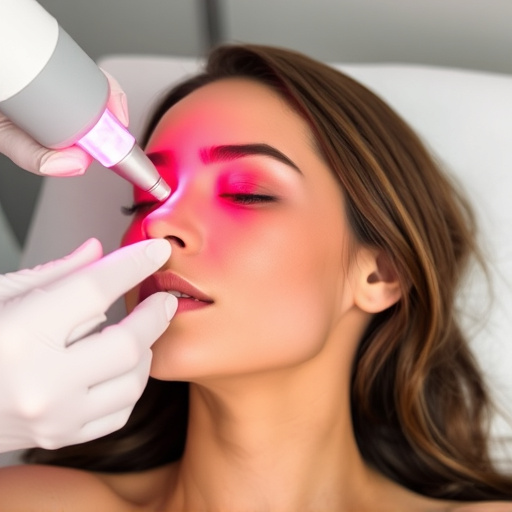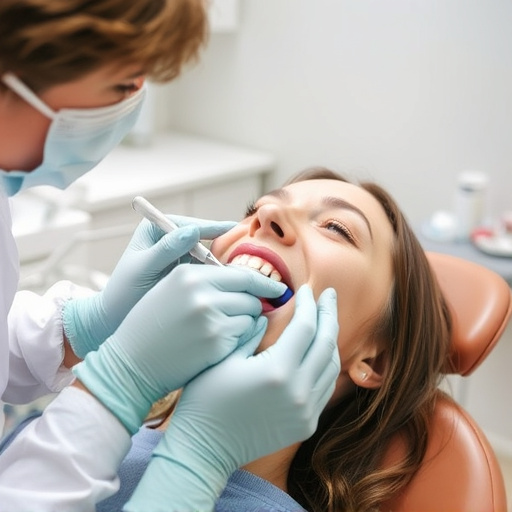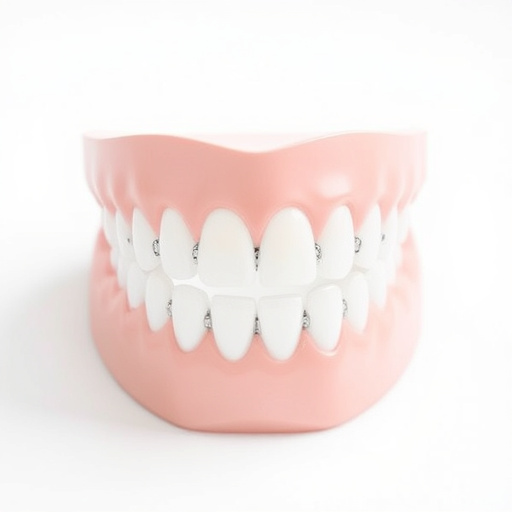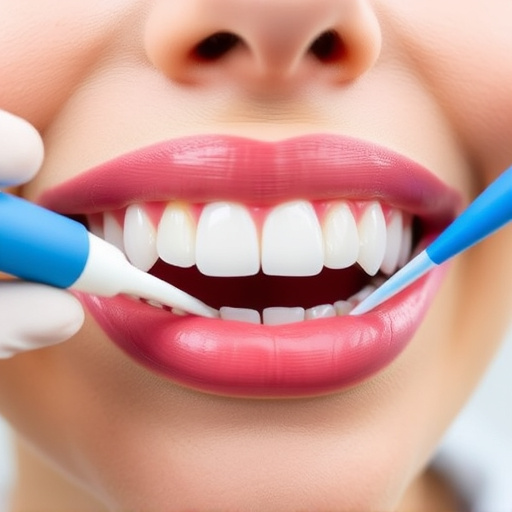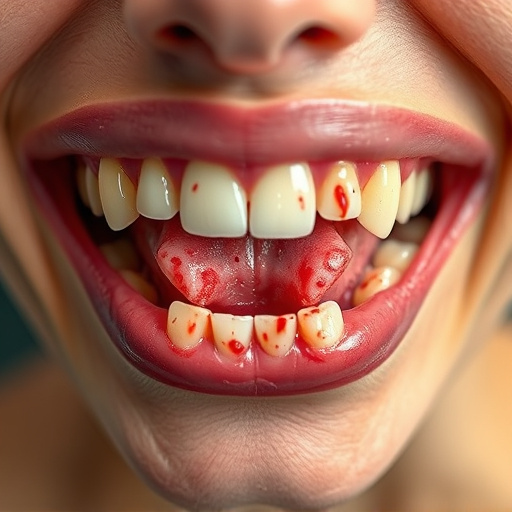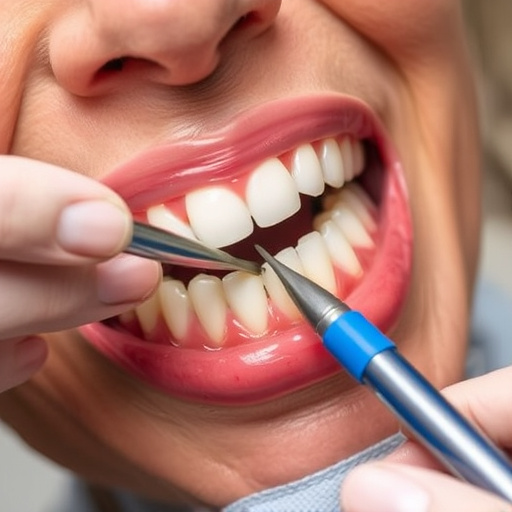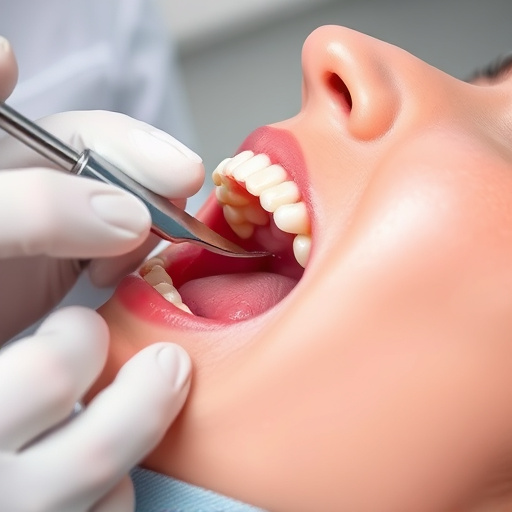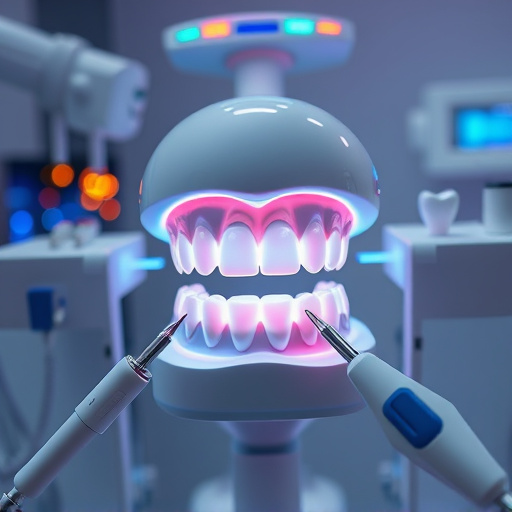Dry mouth (xerostomia) is a common condition caused by reduced saliva production, leading to discomfort and health risks like tooth decay. It can be triggered by medications, medical conditions, or dental procedures. Symptoms include persistent dryness, difficulty swallowing, bad breath, and an increased risk of dental problems. Dentists offer tailored dry mouth solutions, from artificial saliva to lifestyle adjustments, collaborating with healthcare professionals to address root causes. Common solutions also include oral sprays and gels containing xylitol for moisture and tooth decay prevention, while regular check-ups are vital for maintaining oral health. Early intervention through measures like cosmetic fillings can provide long-lasting relief.
Dry mouth, or xerostomia, is a common condition affecting millions. It’s more than just a temporary annoyance—it can lead to significant dental issues if left unaddressed. This article delves into understanding dry mouth, exploring its causes and symptoms, and highlighting the crucial role dentists play in treatment. We uncover effective dry mouth solutions for lasting relief, empowering you with knowledge to combat this persistent discomfort. Discover expert advice on managing and overcoming dry mouth once and for all.
- Understanding Dry Mouth: Causes and Common Symptoms
- The Role of Dentists in Treating Dry Mouth
- Exploring Effective Dry Mouth Solutions for Long-Lasting Relief
Understanding Dry Mouth: Causes and Common Symptoms

Dry mouth, also known as xerostomia, is a common condition characterized by an inadequate flow of saliva. This can lead to various discomforts and health issues if left unaddressed. Understanding its causes and symptoms is essential when seeking dry mouth solutions for lasting relief.
The primary cause of dry mouth is reduced saliva production or increased saliva evaporation. This can result from certain medications, medical conditions like diabetes or Sjögren’s syndrome, as well as general dentistry issues such as jaw joint disorders or nervous system problems. In some cases, it may be a side effect of emergency dental care procedures or even clear aligners worn for orthodontic treatment. Symptoms typically include a persistent dry feeling in the mouth, difficulty swallowing, bad breath, and an increased risk of tooth decay due to reduced saliva’s protective properties.
The Role of Dentists in Treating Dry Mouth
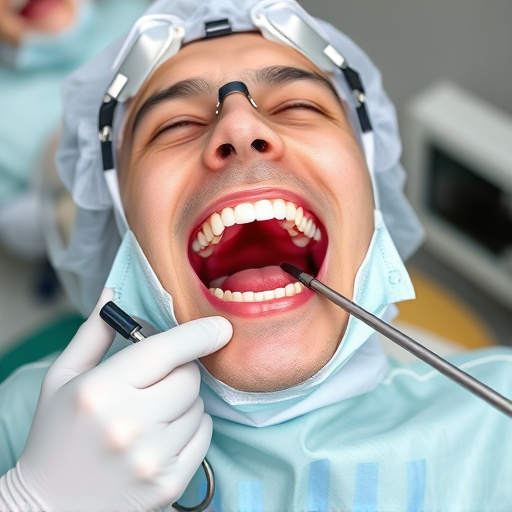
Dentists play a pivotal role in diagnosing and treating dry mouth, offering tailored solutions for lasting relief. Beyond addressing oral health concerns like tooth decay or gum disease, dentists are equipped to identify the root causes of dry mouth, which can range from prescription medications to autoimmune disorders. They conduct comprehensive examinations, considering patient history and symptoms, to recommend appropriate treatments. For instance, they might prescribe artificial saliva or suggest lifestyle adjustments like increasing fluid intake or avoiding drying agents like tobacco and alcohol. In cases where dry mouth is a side effect of certain medications or medical conditions, dentists work collaboratively with healthcare professionals to explore alternative options or adjust medication regimens. This holistic approach ensures that patients receive comprehensive care tailored to their unique needs, addressing both the symptoms and underlying factors contributing to dry mouth.
When it comes to managing dry mouth, especially in young patients, children’s dentistry is a key consideration. Dentists dedicated to pediatric care understand the specific challenges faced by children, offering age-appropriate solutions that promote oral health while alleviating discomfort associated with dry mouth. On the other hand, for individuals considering more advanced dental procedures such as dental implants or tooth extractions, dentists can provide guidance on managing post-treatment dry mouth and offer strategies to maintain optimal oral hygiene during the healing process.
Exploring Effective Dry Mouth Solutions for Long-Lasting Relief

Dry mouth solutions are a critical aspect of managing xerostomia, a condition characterized by an insufficient flow of saliva. This can lead to discomfort, increased susceptibility to dental issues, and even cosmetic concerns. Exploring effective dry mouth solutions is essential for achieving long-lasting relief. One common approach involves over-the-counter or prescription oral sprays and gels that stimulate saliva production. These products often contain ingredients like xylitol, known for its moisturizing properties and ability to prevent tooth decay, a benefit also seen in regular dental cleanings.
Preventive dentistry plays a significant role in maintaining oral health. Dental professionals recommend regular check-ups and comprehensive dental care as part of dry mouth solutions. This includes cosmetic fillings for any resulting tooth damage due to xerostomia. By addressing these concerns early, individuals can enjoy lasting relief from dry mouth symptoms while preserving their smile’s aesthetic and functionality.
Dry mouth can significantly impact one’s quality of life, but with proper care and the guidance of dentists, lasting relief is achievable. Exploring effective dry mouth solutions, from medication to lifestyle changes, can provide much-needed respite. By addressing the root causes and implementing recommended treatments, individuals can experience improved oral health and overall well-being. Dentists play a crucial role in guiding patients towards suitable dry mouth solutions, offering both short-term relief and long-lasting management strategies.


